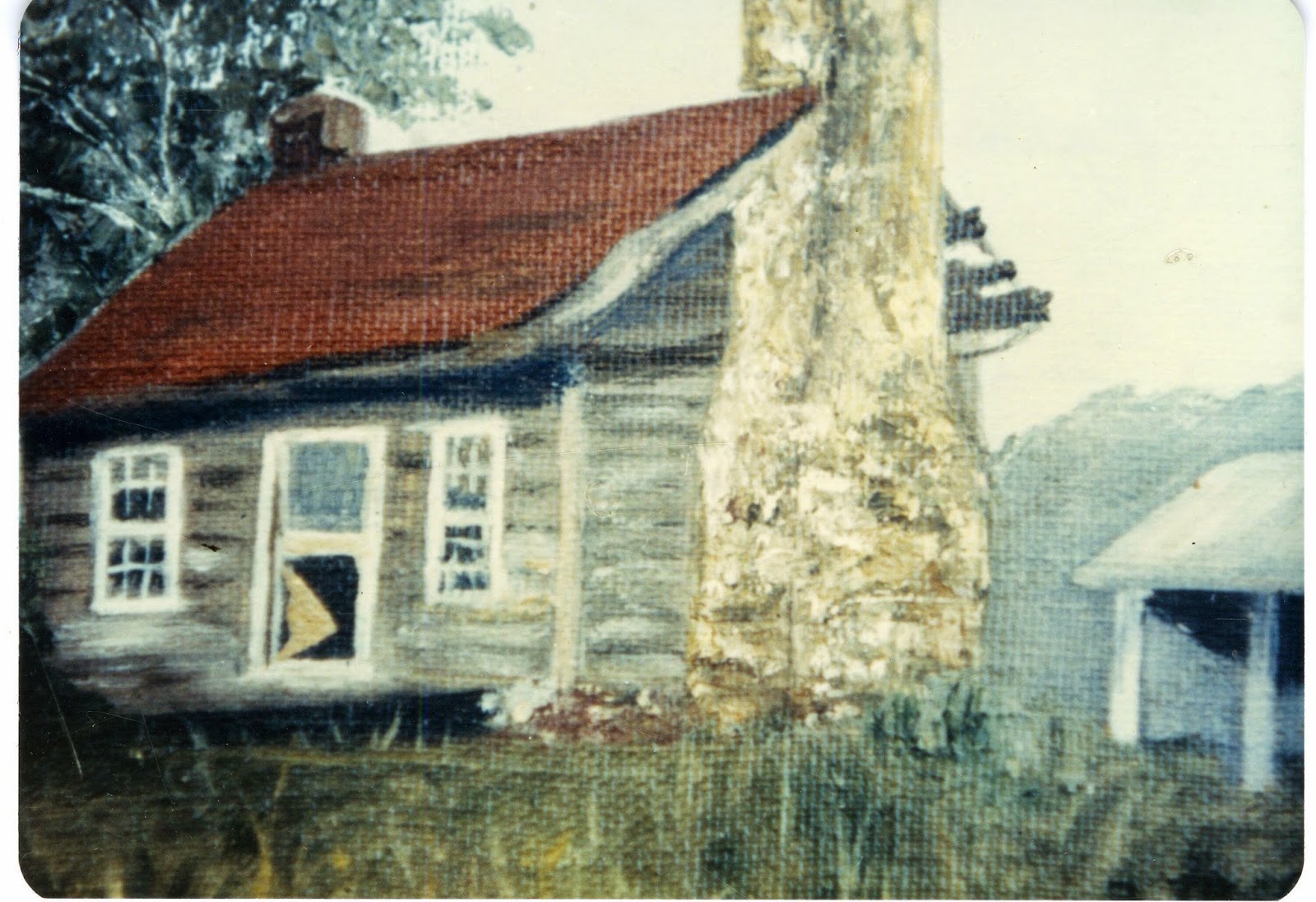When Andrew Jackson Lyday attended medical school at the
Medical College of Charleston in the mid-1840s he had no idea that the Lyday
name would be associated with more than 100 years of medicine in a place that
hadn’t even been established as Transylvania County yet. Andrew Jackson Lyday was born May 13,
1824. At the time the Lyday home and
farm was located in Buncombe County, later it became a part of Henderson County
(1839) and finally Transylvania County (1861).
Following medical school Lyday returned home and married
Elizabeth Clayton in 1847. They built a
log cabin on Lyday family land west of present day Penrose. The Lyday’s had a large farm and a large
family of 12 children. The soon built a
larger frame home which stood until the early 1990s.
Dr. A.J. Lyday was the only doctor for miles around. He made house calls on horseback and had an
office beside his home. Dr. Lyday practiced
medicine in the community for more than 40 years. He died September 1, 1890 and is buried in
the Davidson River Cemetery.
 |
Painting of Dr. A.J. Lyday’s office on the family farm.
|
William Monroe “Dr. Bill” attended medical school in
Baltimore, Maryland. He practiced
medicine in Transylvania County from 1886-1932.
Dr. Bill died on August 15, 1932.
His obituary tells of his joy just 10 weeks earlier at the opening of
the Lyday Memorial Hospital, named for his father. All three of Dr. Bill’s sons, two grandsons
and two great-grandsons were also doctors.
Abraham Elliott “Dr. L” was both a medical doctor and a
dentist. Like his father, he attended
the Medical College of Charleston. Dr. L
served the Little River community from 1891 until his death in 1929.
A.J. and Elizabeth Lyday’s youngest son, Leon, was a teacher
and farmer in Transylvania County. Two
of Leon Lyday’s sons followed in the family tradition and became doctors as
well. Like his grandfather and uncles, Dr.
Wilson Lyday practiced medicine in Transylvania County for more than 40
years. Dr. John Lyday’s career took him
to other places.
John Lyday, who had attended Western Carolina, was a chemist
at Ecusta before serving as a gunner and radio operator in WWII. After the war he attended the University of
North Carolina at Chapel Hill and medical school at the University of
Pennsylvania. He was a Captain and
surgeon with the 8055th Mobile Army Surgical Hospital (M*A*S*H*)
unit in Korea.
While in Korea, Lyday worked with Dr. Richard Hornberger who
later wrote about life with a mobile military hospital unit using the pen name
Richard Hooker. The 1970 movie and
1972-1983 television series M*A*S*H* was based on Hornberger's novel. Although Hornberger’s stories wove together
many people and events he encountered, he loosely based the character of
Trapper John on Dr. John Lyday
.
Following the Korean Conflict, Dr. John Lyday continued his
medical training then joined his cousin, Dr. Russell Lyday, in practice in
Greensboro in 1958. He served was Chief
of Surgery at Moses Cone Hospital (1973-75) and retired in 1989.
Although the home, farm buildings and Dr. Lyday’s office are
all gone Lyday family descendants still own the property.
Photographs
and information for this column are provided by the Rowell Bosse North Carolina
Room, Transylvania County Library. Visit the NC Room during regular
library hours (Monday-Friday) to learn more about our history and see
additional photographs. For more information, comments or suggestions
contact Marcy at marcy.thompson@transylvaniacounty.org or
828-884-3151 X242.

No comments:
Post a Comment